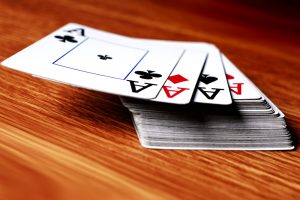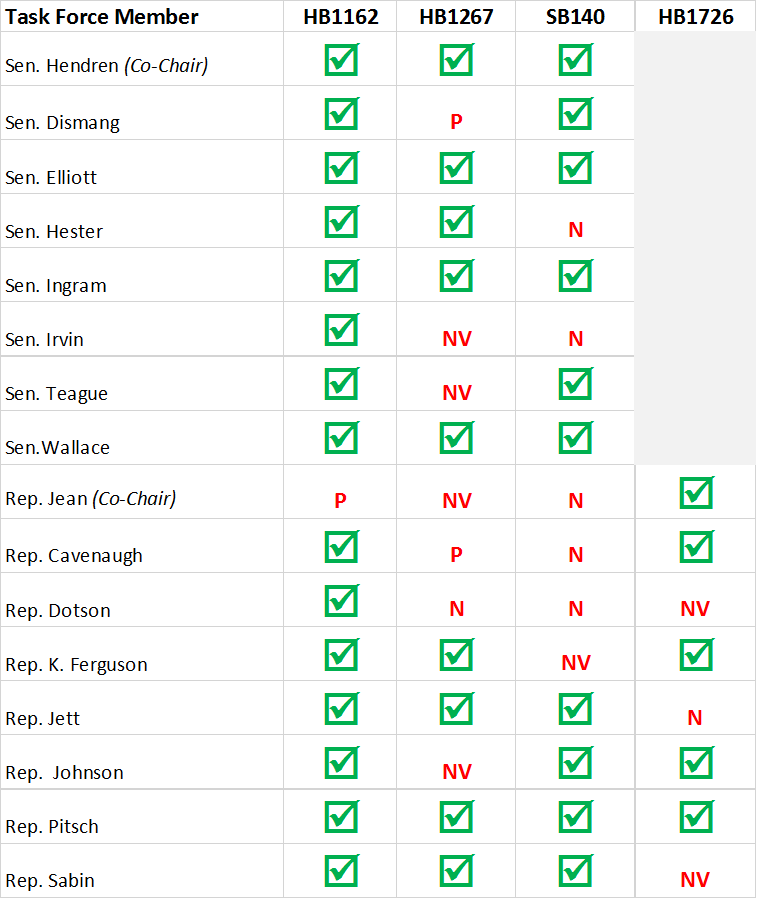Tax Task Force – The deck is stacked against taxpayers
Updated 7/12/2017
 This year the legislature created the “Tax Reform and Relief Legislative Task Force”. From the membership of the task force we can see the deck has been stacked against opponents of more taxes.
This year the legislature created the “Tax Reform and Relief Legislative Task Force”. From the membership of the task force we can see the deck has been stacked against opponents of more taxes.
Appointments to the task force are stacked with legislators who voted for tax increases this year. We looked at four tax increase bills from this year.
- 7 of the 8 Senators on the task force voted for at least two of three tax bills considered in the Senate.
- 6 of the 8 Representatives on the task force voted for at least two of the four tax bills considered in the House.
- Some voted for all these tax increase bills. (3 bills in the Senate and 4 bills in the House)
- The few task force members who have a decent record against taxes voted for at least one tax increase.
Let’s look at the chart. Then we will summarize each bill and list how much more new tax revenue would come from each. The first two tax bills became law and other two were blocked in the House of Representatives.
Key:
Means a vote for a tax increase.
N, P, or NV Indicates opposition to the tax increase. A legislator can oppose the tax by voting “No” or “Present” or by “Not Voting.” Each action works to deny the bill enough votes to pass.
Note: HB1267 was not considered by the Senate.
Summary of the tax increase bills
- House Bill HB1162 (Act 141) it was sold as an income tax exemption for military retirement pay. It also gave a tax exemption to soft drink manufacturers. The bill was controversial because of several tax increases included in the bill. It increases the tax on soft drinks and candy, imposes a tax on digital products and digital downloads, and applies the income tax to payments of unemployment compensation. There was another bill to give a tax break for military retirement pay that did not include tax increases, but it saw no action. (The new law will increase taxes by $3 million in Fiscal Year 2018 and $5.9 million in Fiscal Year 2019)[i] Even if the tax breaks and tax increases had balanced it would still be a tax increase law, because most taxpayers will pay more while only a few will pay less.
- House Bill 1267 (Act 317) increased the tax on new tires by $1.00 and imposed a new tax of $1.00 on used tires. The new law calls it a “fee” but it is still a tax. (How much of a tax increase will result from the tax on used tires is unknown, but the remainder of the new law will increase taxes by$1.5 million.)[ii]
- Senate Bill 140 failed but would have imposed an internet sales and use tax when you purchase goods from out-of-state sellers. (The sponsor estimated up to $100 million in new tax money.)[iii]
- House Bill 1726 failed in the House. (Never considered in the Senate). It was part of a two-bill plan to increase gasoline and diesel taxes to fund highway bonds. The bill would have put on the ballot a proposal to authorize new highway bonds, but the proposal would not tell voters a vote “FOR” would trigger an increase in gasoline and diesel taxes. Note the impact is found in the companion bill HB1727 and both bills were necessary for the plan. (Increase of $217.2 million.)[iv]
These four tax increase bills are discussed further in the CFA article “I didn’t eat the chocolate or vote for tax increases.”
[i] “General Revenue Estimated Impacts of the 91st General Assembly, 2017 Regular Session,” 2017 Summary of Fiscal Legislation, Bureau of Legislative Research
[ii] http://www.arkleg.state.ar.us/assembly/2017/2017R/Fiscal%20Impacts/HB1267-DFA2.pdf
[iii] http://www.arkansasonline.com/news/2017/apr/04/online-sales-tax-quest-fails-again-2017/
[iv] Passage of both HB1726 and HB1727 would have been necessary for the tax plan. This is the link to the Fiscal Impact Statement for HB1727 – http://www.arkleg.state.ar.us/assembly/2017/2017R/Fiscal%20Impacts/HB1727-DFA1.pdf

